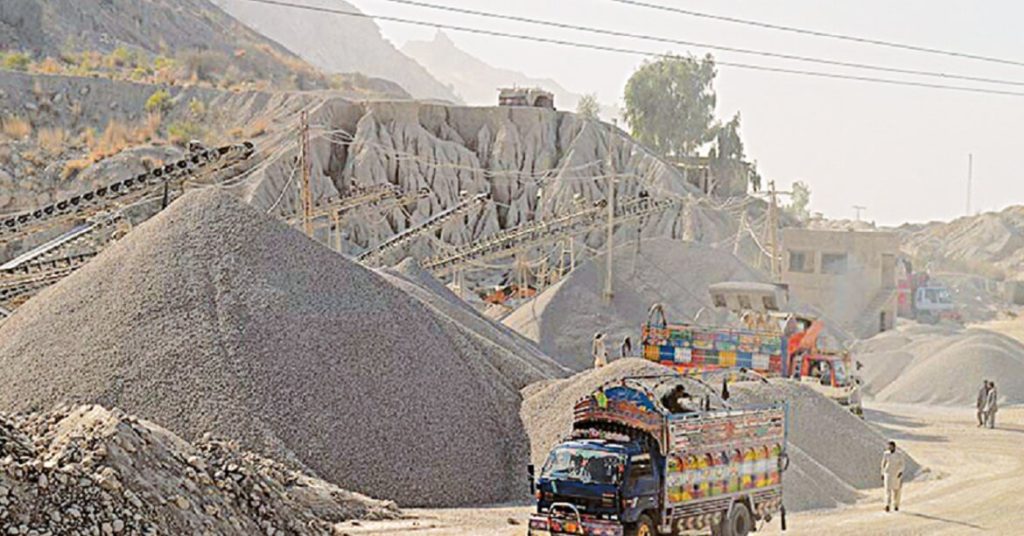World Geostrategic Insights interview with Sardar Mehdi Hassan Musa on what the security situation in Balochistan, Pakistan’s largest province, looks like now; whether it is possible to find a line of dialogue and agreement between the Pakistani state and Baloch nationalists; the current socio-economic situation; and opportunities for international investment and collaboration.

Sardar Mehdi Hassan Musa, former Minister of Balochistan, is chairman of the Hazara Mughal Yekjaheti Forum, managing director of Majesta Mining International and a member of the Balochistan Economic Forum.
Q1 – Pakistan’s southwestern province of Balochistan, according to a widespread narrative, is a complex region fraught with conflict and hostility, ranging from enduring insurgency and sectarian violence, terrorist attacks and appalling human rights violations. However, despite these challenges, the province appears to have made significant progress in recent years. What does the security situation in Balochistan look like now?
A1 – Yes indeed, Balochiistan is a very complex region. It is multi ethnic and a very tribal society. The geostrategic location of Balochistan is very important for Pakistan’s development and security as a whole, I may say that it is the strategic depth that Pakistan needs vis a vis India, as you know that Pakistan and India has fought many wars and are hostile to each other since the time of partition of British India. The security issues of Balochistan are as complex as the region itself. The province has a 1200 plus kms of border with Afghanistan and a 900 plus kms border with Iran. It is the least populated and least developed province of Pakistan. The main ethnic tribes are the Baloch, Pashtoon and the Hazaras. There has been active insurgency in the province which has support from external forces and since the early 2000s it has seen a rise in sectarian violence, mainly the Hazaras have been targeted. The Hazaras have been at the receiving end of sectarian violence for centuries now; it started with the reign of Amir Abdul Rehman, the King of Afghanistan, in the 1800s. The lack of infrastructure and rampant corruption has played a significant role in the feeling of deprivation in the population. For most parts of the history, different Sardars (Tribal Chiefs) have been the Chief Minister and Governor of the province. Yet the population feels alienated and disgruntled. Employment opportunities are nonexistent and that makes matters worse. There are reports of training camps run by hostile intelligence agencies in the province and also across the border in Afghanistan. In these camps the insurgents and the sectarian terrorists train together and there are also reports that they hit targets for each other too, in order to put security forces off track. The CPEC has brought in much needed investments in the province and hopefully it will play a role in providing employment to the population.
Q2 – What are the views and aspirations of the Baloch people in general? Could a Baloch insurgency really threaten the integrity of Pakistan? What is the likelihood of an independent Balochistan? Might it be possible to find a line of dialogue and agreement between the Pakistani state and the Baloch nationalists?
A2 – The Baloch are not the only people living in Balochistan, as I said before, there are other tribes living in Balochistan too. The Baloch are a very proud and gallant people, they are as tough as the environment that they survive in. You give respect to the Balch and he will die for you. They are simple and hospitable people. The problem is that the central government tries to govern Balochistan through the bureaucracy and the like minded Sardars. The ground realities are ignored in most of the decision making. The people of Balochistan have been deprived of equal opportunities and due share in the employment sector and they feel that their resources have been used/usurped by the whole of Pakistan and they have been deprived of them. Balochistan is recours rich and if it is exploited and the benefits are judiciously used in the Province, there will be no ground for insurgency left. Development and Education are the key factors. The security situation is not ideal, but it is under control. There is no question of the insurgency threatening the integrity of Pakistan. An independent Balochistan is extremely unlikely, if there is such a thing, it will be full of infighting between the different Sardars and tribles for dominance and power. What about the Pashtoon population, they are a significant number and would not be part of an independent Balochistan. There are certain maps and ideas which have been floated by different think tanks and individuals of a greater Balochistan which includes the Sistan Baluchistan province of Iran. Keep in mind that Iran and Pakistan will not let this happen that easily, one sees what kind of promises and incentives were given to the Kurds in Syria and Iraq, but have they been able to carve an independent Kurdistan? Not really, the reality is, that Balochistan is a very important province of Pakistan and it will be so for the foreseeable future. There seems to be progress in dialog with the Baloch Nationalists and I think it is still work in progress, there has to be give and take for both sides.
Q3 – Balochistan is an area with enormous potential for economic development. It is the largest province in Pakistan, covering about 43 percent of the total area, with a mega port, extensive natural resources, and major development projects such as Reko Diq, a large copper and gold mining project, and the Saindak Copper Gold Project, also aimed at exploiting mineral resources. In addition, the China-Pakistan Economic Corridor (CPEC) passes through Balochistan. What is the current socio-economic situation in the province? Are there concrete opportunities for international investments and collaboration?
A3 – Balochistan has tremendous opportunities for investments. To fully exploit the resources, there is need for infrastructure development and this in itself has potential for investment. There are many opportunities for investment in the Agriculture industry in Balochistan, if the water issue can be resolved, Balochistan has the potential to feed 4 countries! Gwadar port is on its way to become one of the major ports of the region. If the youth of Balochistan are trained and have technical skills, there will be opportunities for industrial development and investments. Mining sector has many diverse investment opportunities from Oil and Gas to Mettle and Stones, you name it and we have it. To make all this possible, the security matters need to be taken care of. I think the State of Pakistan is very serious in tackling this. In my opinion, they also need to make sure that corruption is dealt with in the same spirit. The present establishment seems to be working in this direction.
Sardar Mehdi Hassan Musa – Former Minister of Balochistan
Image Credit: APP/File







